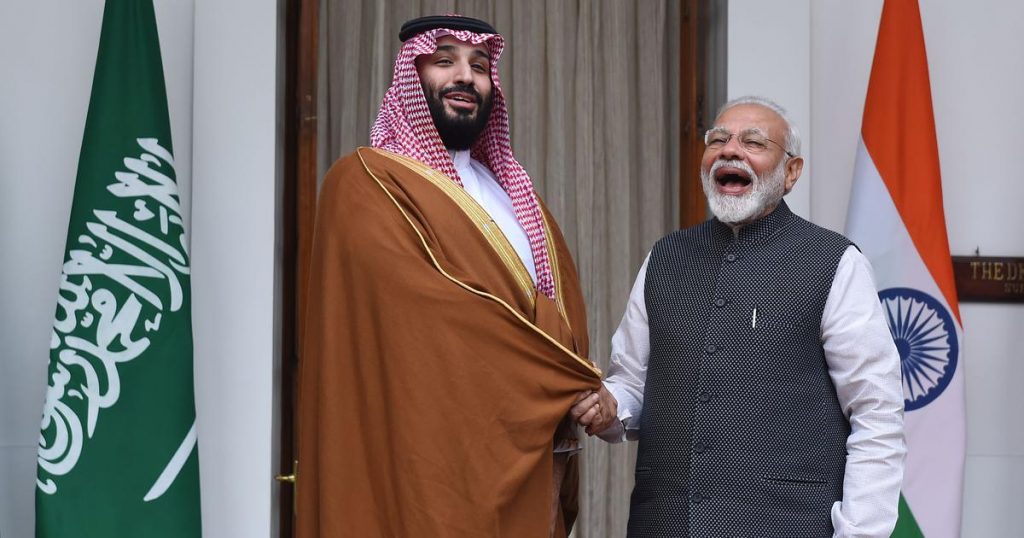
By M Ghazali Khan
The part of Turkish president Tayab Rajab Erdogan’s speech delivered at the G20 summit in Delhi in which he condemned blasphemy against the Holy Qur’an and Islamophobia ‘in some Western countries and in some locations’ has been completely ignored by the local or international media. Only the Turkish press and some Urdu newspapers in India have reported it.
Erdogan said: ‘One world, one family and one future ideal can be massively harmed as a result of islamophobia and xenophobia’ which is spreading like, the ‘Black Plague’.
He added: ‘Many of the countries defending democracy and human rights are, unfortunately, silent in the face of such barbaric acts.’
‘Under the protection of the police, the holy book of Quran is burnt. It’s not freedom of expression; it is a sheer provocation [and] hate crime.’
Erdogan warned: ‘Nobody should expect us to remain silent and indifferent in the face of such actions.’
In view of Erdogan’s views and his keen interest in the affairs of the Ummah, it may not be a wrong assumption that while referring to Islamophobia ‘in some Western countries and in some locations’, he also had Indian Muslims in mind. Therefore, in the prevailing shameful environment of the indifference of Muslim countries towards Indian Muslims, Erdogan’s speech is a welcome move.
With the exception of some occasional customary protests by the Organisation of Islamic Countries (OIC), or the condemnation by the Kuwait Assembly of anti-Muslim violence in India, no other country has ever raised a voice of protest against Hindutva fascism and the blatant threats issued by them. The first, and so far the last, person to have highlighted the fascism of Hindutva, was the former Pakistani Prime Minister Imran Khan; his bold action peeved the self-proclaimed leader of the Indian Muslims Maulana Mehmood Madani that he rushed to Geneva to hold a press conference there to mitigate the effect of Imran Khan’s bold step.
Notwithstanding the insensitivity of the Muslim world, Indian politicians in the past always carried a real or unreal apprehension of the adverse reactions of the Muslim countries against the discrimination meted out to Indian Muslims. Whenever they visited the Muslim, especially the Gulf countries, they always talked about historical ties between the host country and India and so on. Even after repeated displays of apathy by the Muslim countries towards Indian Muslims, when the then Prime Minister Atal Bihari Vajpayee, was to visit Syria, he was worried about the possibility of concerns being raised about the Gujarat Genocide 2002. ‘I am ashamed,’ he said when he met the victims of the massacre in Ahmadabad, ‘I don’t know what face I will put up to some of the Muslim countries I have to visit?’
However, as was expected, no one there bothered to ask him anything about Indian Muslims. On his return, when he was asked as to whether there was an ISI hand behind the Godhra carnage, he said, ‘Investigations are still on into the matter, but prima facie it looks like a planned attack rather than a spontaneous one. (Times of India 4 April 2002).
On his first tour to Saudi Arabia, even Narendra Modi thought it appropriate to highlight the historical ties between the two countries. On this occasion, not only did he present a model, cast in gold, of Cheraman Juma Masjid of Kerala, built in 629, to Mohammad Bin Salman but also tweeted the photo of the model for all to see.
But in 2023, the shallowness of Muslims’ claim to be one ummah was exposed. The reality of their weak faith in the hadith of the Prophet Muhammadﷺ is not a secret anymore in which he enjoins mutual empathy upon Muslims by saying that ‘The believers are like one person; if his head aches, the whole body aches with fever and sleeplessness.’
“ الْمُؤْمِنُونَ كَرَجُلٍ وَاحِدٍ إِنِ اشْتَكَى رَأْسُهُ تَدَاعَى لَهُ سَائِرُ الْجَسَدِ بِالْحُمَّى وَالسَّهَرِ ” (مسلم)
It’s not only Saudi Arabia that has fallen in love with Modi, but even Iran, with all its lofty claims to be an ‘Islamic Republic‘ did not feel any hesitation in inviting and honouring the butcher of Gujarat on her soil.
Saudi Arabia’s silence is not the result of a new policy. Describing his experience, the editor and founder of The Milli Gazette, Dr Zafar ul Islam Khan says: ‘ I started The Milli Gazette in January 2000 when I had a good job and I was working as the India correspondent of the Saudi daily, Al-Riyadh. This was a well-paid job that continued for some six years. But when I, among other issues, candidly raised the issue of the excesses meted out to Muslims in Gujarat and Kashmir etc., this caused problems. One day the Saudi ambassador in Delhi called me at the embassy and told me bluntly, ‘We are trying to build good relations with India and you are trying to spoil these relations.’ He asked me not to write anything that was against the Indian Government. Such a gag order was not acceptable to me. He must have also spoken to the Al-Riyadh newspaper. Soon, small complaints started to stream in from the newspaper and eventually, I quit the job.’
Obviously, the deals signed between Saudi Arabia and India will mostly benefit Hindutva supporters and RSS members and sympathisers. In the 2024 elections, in addition to having ‘taught a lesson to Muslims,’ Narendra Modi will have a long list of ‘achievements’ to sell to his supporters. This may sound extreme, but the fact is that by signing these protocols, without a word of concern about Modi’s anti-Muslim policies, Saudi Arabia has given a clear message to the Hindutva government that Indian Muslims do not matter to them and that they can deal with the community in whatever way it pleases them.
While the Saudi crown prince was shaking hands with diehard Hindutva anchors known for their foul-mouthing and anti-Muslim propaganda, several Muslims in Nuh, Haryana, had been made homeless by bulldozing their houses for the crimes many of them did not commit, youths had been incarcerated and a 30 years old qualified civil engineer, Nurul Hasan Liyaqat Shikalgar, whose recently married wife is expecting, had been martyred in Sitara, Maharashtra.
The only way with which an aggressive individual, group or country can be deterred and stopped from its crimes is strong resistance or economic threat. But in the case of Indian Muslims, while their leaders and ulema are scared even to encourage them to take measures to defend themselves, the custodians of the holiest places of Islam have opened their doors to the killers who are desperate to spill Muslim blood. But then, what else can be expected of a government courting with the Zionist occupiers of Palestine who are desecrating the sanctity of Masjid-al-Aqsa and spilling the blood of Palestinians? Such behaviour is hardly surprising for a government that has arrested and handed Uyghur Muslims, who had travelled to Saudi Arabia for Umrah, back to China and has even condoned the Chinese persecution of them.
This is the time when Indian Muslims should have sat together and deliberated on how to circumvent the existential threats, but, alas, they are still accusing each other of depravity.

Very good writeup of our unfortunate state as a ummah.
A thought provoking article. May Allah give more clarity to rest of us, journalists, intellectuals and islamic leaders and ulema.
Well articulated and well said, self proclaimed Indian Muslim leader